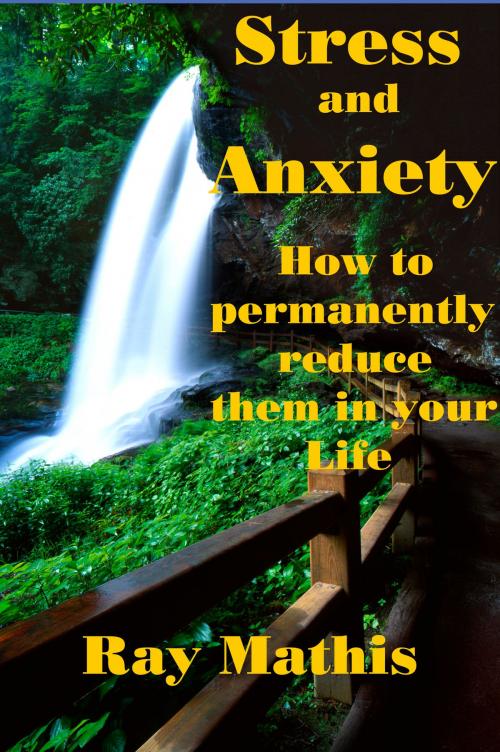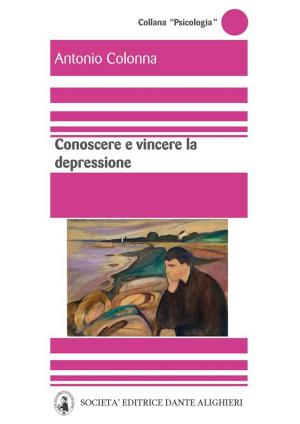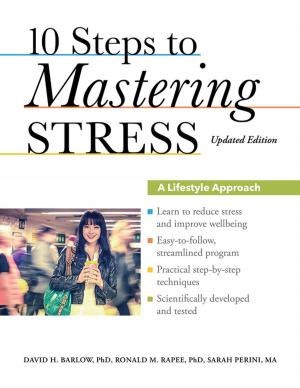Stress and Anxiety: How to permanently reduce them in your life
Nonfiction, Health & Well Being, Medical, Ailments & Diseases, Mental Health, Psychology| Author: | Ray Mathis | ISBN: | 9781301070107 |
| Publisher: | Ray Mathis | Publication: | June 20, 2013 |
| Imprint: | Smashwords Edition | Language: | English |
| Author: | Ray Mathis |
| ISBN: | 9781301070107 |
| Publisher: | Ray Mathis |
| Publication: | June 20, 2013 |
| Imprint: | Smashwords Edition |
| Language: | English |
More often than not, when people talk about being "stressed out", or being "under a lot of pressure", they are really experiencing a dysfunctional amount of anxiety. Anxiety is technically a figment (product) of imagination. Imagination is a double edge sword. It makes us creative, and can even alert us to potentially life-endangering threats. However, millions of people often spend too much time in their imaginations, and generate a lot of needless anxiety, sometimes to the point of it being crippling or paralyzing, or making them ill.
There are a lot of books about how to manage stress better. The strategies other books give do help lower stress. However, they are often what therapists call "band aids" because they only give temporary relief, and only while you're doing them. In many ways, many of these strategies are like using over-the-counter medications for the symptoms of a cold or the flu. As long as these medications are in your bloodstream and tissues, you get relief from the symptoms of your cold or flu. However, once the level of these medications in your blood or tissues drops, your symptoms return. The reason being that they did nothing to address the virus that is infecting your tissues and causing your symptoms.
In a similar way, as long as you are exercising, doing yoga, listening to music, or meditating (or even drinking or under the influence of other drugs) , you will have less anxiety and be less stressed, and feel less pressure. What all these healthy (and unhealthy) endeavors do is give you a temporary break from the real or imagined events of your life, and the thoughts that typically go with them, and cause anxiety, stress and pressure. When you stop doing these things, (or sober up) the events of your life are typically waiting for you, or return in your imagination, along with the thoughts that usually accompany them. That causes your anxiety, stress and pressure to start to build back up. The reason is simple. Like OTC medications, these "band aid" approaches to stress management do nothing about the underlying cause of anxiety, stress and pressure - what you think about the real or imagined events of your life.
This reduction, build back up cycle is why people can become essentially addicted to all manner of things, both healthy and unhealthy. They start to notice that they only feel better when they are doing those things. Their tolerance for how they feel in between often even goes down, making them want to engage in those activities ever more than before. In the case of activities like exercise, yoga, meditating or reading, they can be benefits from doing more. However, you can overdo anything, and even the best of activities can start to have untoward effects (i.e. injury). At the very least, they deprive you of time you could, and might want to spend doing other things.
There's a difference between temporarily feeling better and getting better. GETTING better means permanently reducing the frequency, intensity and duration of anxiety, stress and pressure in your life. There's only one way to really GET better. That's to change the way you think. This book will show you how.
More often than not, when people talk about being "stressed out", or being "under a lot of pressure", they are really experiencing a dysfunctional amount of anxiety. Anxiety is technically a figment (product) of imagination. Imagination is a double edge sword. It makes us creative, and can even alert us to potentially life-endangering threats. However, millions of people often spend too much time in their imaginations, and generate a lot of needless anxiety, sometimes to the point of it being crippling or paralyzing, or making them ill.
There are a lot of books about how to manage stress better. The strategies other books give do help lower stress. However, they are often what therapists call "band aids" because they only give temporary relief, and only while you're doing them. In many ways, many of these strategies are like using over-the-counter medications for the symptoms of a cold or the flu. As long as these medications are in your bloodstream and tissues, you get relief from the symptoms of your cold or flu. However, once the level of these medications in your blood or tissues drops, your symptoms return. The reason being that they did nothing to address the virus that is infecting your tissues and causing your symptoms.
In a similar way, as long as you are exercising, doing yoga, listening to music, or meditating (or even drinking or under the influence of other drugs) , you will have less anxiety and be less stressed, and feel less pressure. What all these healthy (and unhealthy) endeavors do is give you a temporary break from the real or imagined events of your life, and the thoughts that typically go with them, and cause anxiety, stress and pressure. When you stop doing these things, (or sober up) the events of your life are typically waiting for you, or return in your imagination, along with the thoughts that usually accompany them. That causes your anxiety, stress and pressure to start to build back up. The reason is simple. Like OTC medications, these "band aid" approaches to stress management do nothing about the underlying cause of anxiety, stress and pressure - what you think about the real or imagined events of your life.
This reduction, build back up cycle is why people can become essentially addicted to all manner of things, both healthy and unhealthy. They start to notice that they only feel better when they are doing those things. Their tolerance for how they feel in between often even goes down, making them want to engage in those activities ever more than before. In the case of activities like exercise, yoga, meditating or reading, they can be benefits from doing more. However, you can overdo anything, and even the best of activities can start to have untoward effects (i.e. injury). At the very least, they deprive you of time you could, and might want to spend doing other things.
There's a difference between temporarily feeling better and getting better. GETTING better means permanently reducing the frequency, intensity and duration of anxiety, stress and pressure in your life. There's only one way to really GET better. That's to change the way you think. This book will show you how.















